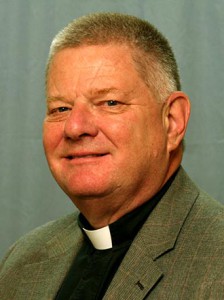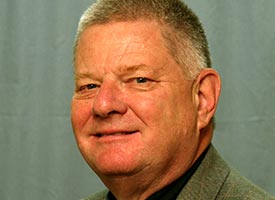Should medical personnel expose themselves to a highly contagious and lethal disease in an effort to bring relief to the infected?

In the last week, Nancy Writebol and Dr. Kent Brantly made the news. The pair contracted the deadly Ebola virus while serving in Liberia with Samaritan’s Purse, a Christian organization. Subsequently, this man and woman were evacuated to Atlanta for treatment. Were they but another case of well-meaning but misguided missionary zeal? Or even worse, was this work a case of mindless Christian evangelistic intrusion into a third-world country that now carries with it an expensive price tag?
How are Christians to react when an epidemic not only causes untold suffering but also puts at risk those who would serve the infected and dying?
Martin Luther offered needed perspective in addressing these questions. In a letter written to a Breslau pastor, the Rev. John Hess, in 1527 when a plague was ravishing Germany, the reformer offered counsel that is still instructive today. Avoiding both impulsive heroism and cowardly avoidance, Luther urges Christians who serve in both spiritual and earthly offices to the exercise of both faith and love. Entrusting one’s life and well-being into the hands of a faithful Creator, as we do in morning and evening prayers in Luther’s Small Catechism, Christians have the boldness to act in love for the neighbor. To neglect the good of the neighbor is sin. Not only pastors — but also those who have secular callings — are obligated to protect the common good by attending to their duties. These responsibilities override personal comfort and safety. Having received the love of Christ Jesus, Christians show forth this love in the “divine service” of attending to the sick and the dying, even when it calls for risk and sacrifice.
Just prior to writing the letter to Pastor Hess, Luther gave a lecture to his Wittenberg students on 1 John, where the apostle teaches that a failure to love amounts to murder. Noting that the Fifth Commandment binds us to care for our fellow human beings, Luther reminds the pastor that Christ Jesus hides behind the mask of the sick, needy and dying to receive a service of love from us in the care that we render to the infected. To run away from an infected neighbor is to forsake Christ Himself.
While it is true that not all pastors, medical workers and public servants need remain in a place overcome by an epidemic if adequate care is available and provided and that those with strong faith are not to judge the weak in the personal decisions that are made, Luther insists that Christians in their various vocations are not to abandon their responsibilities if this means that those who need care are deprived of what they need spiritually or physically. Drawing on Christ’s words in John’s Gospel (10:11-12) about the hireling who forsakes the flock when the thief shows up, Luther concludes that faithful shepherds will not forsake those committed to their care in order to save their own lives. Luther applies this not only to pastors, but also to others who are called to provide protection for their neighbors. To be sure, unnecessary risks are to be avoided, lest we tempt God with our own foolishness. Caregivers are to act with prudence, but such wisdom never means that those who are suffering are left unattended.
Luther’s words to Pastor Hess prompt us to give thanks for faithful missionaries and medical workers who are providing unflinching care for the hundreds of people suffering in western Africa. It is a noble and God-pleasing work that they are doing. They are not deserving of disdain or ridicule as they fulfill their offices of love, for in doing so they demonstrate the truth and potency of Jesus’ example of sacrificial service, even to the point of giving their own lives.
The Rev. John T. Pless is assistant professor of Pastoral Ministry and Mission and director of Field Education at Concordia Theological Seminary, Fort Wayne, Ind. He also serves as a visiting professor at Lutheran Theological Seminary in Pretoria, South Africa. In his book Martin Luther: Preacher of the Cross (Concordia Publishing House, 2013), Pless writes that “Luther’s letter to Pastor Hess expresses the place of faith and love in relationship to vocation.”
Posted Aug. 12, 2014
